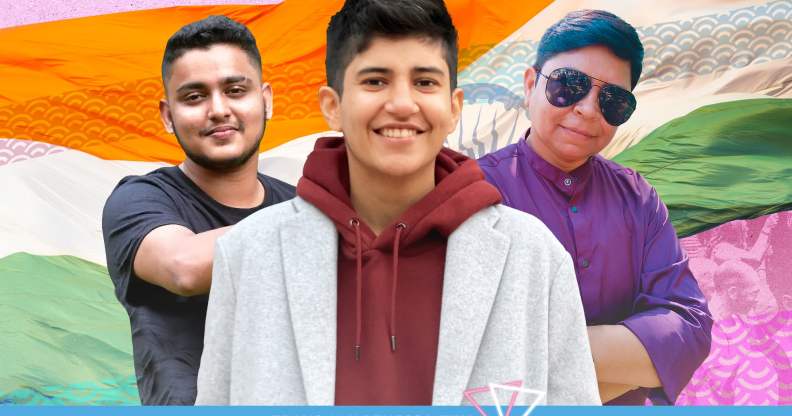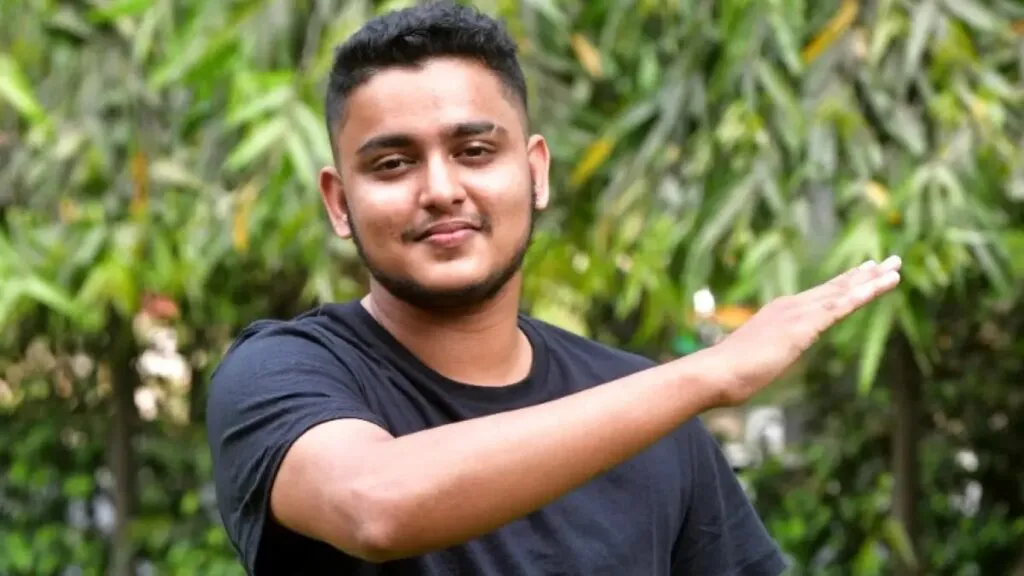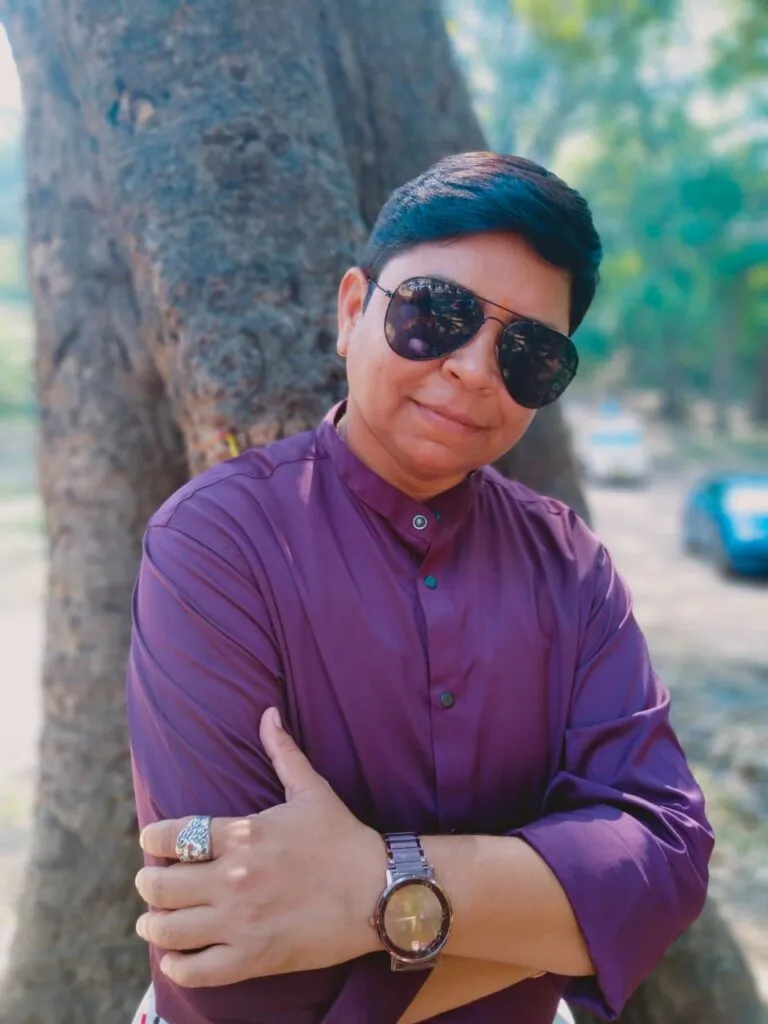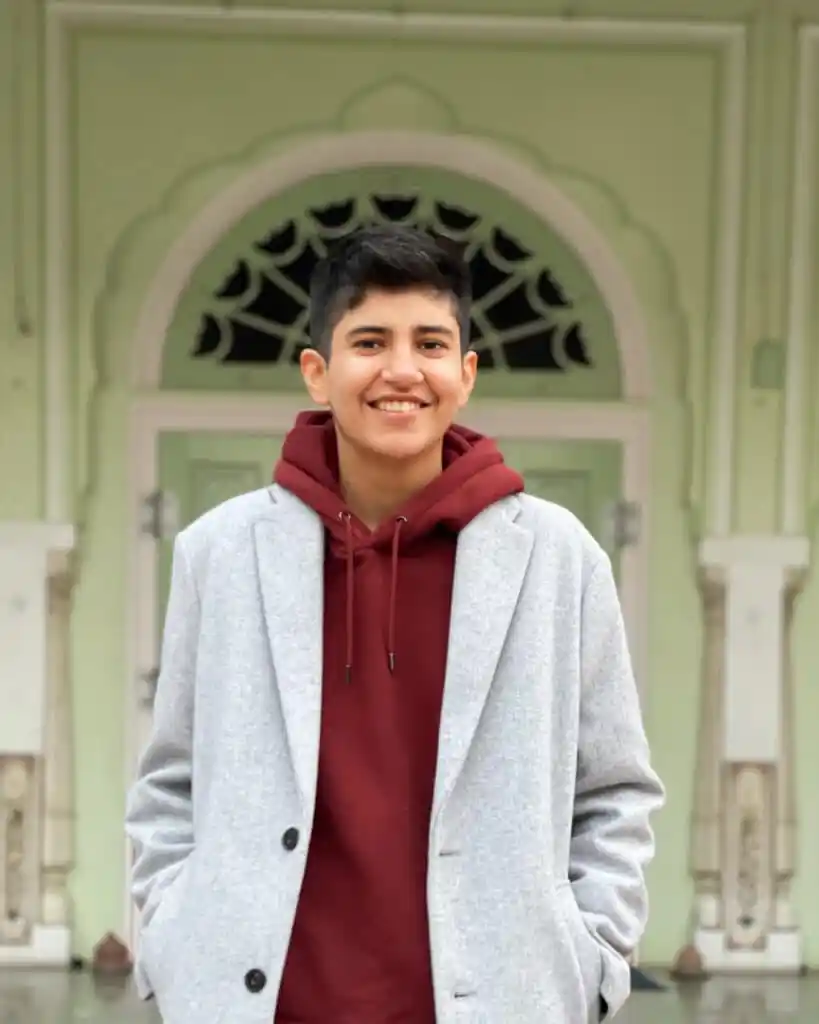Indian trans men who took on the system and won: Powerful tales of survival, defiance and liberation

Adam Harry, Jay Anand and Krishna Panchani. (Supplied)
Trans men in India are often made to feel invisible – but that doesn’t mean they don’t exist, and that they can’t thrive.
In 2014, India’s Supreme Court ruled that trans people should be recognised as a “third gender”, and that they should not be denied fundamental human rights.
However, some still struggle to access education, healthcare, and employment. In 2019, a law was passed to prohibit discrimination in these areas, but requires trans people to provide proof of gender-affirming surgery before they can gain legal recognition, something activists have said goes against the 2014 ruling.
The law also makes abusing trans people a crime punishable by up to two years in prison – but this is a much lesser penalty than those given to other abusers, and violence and hate crimes remain pervasive.
In many conversations around trans people in India, trans men are omitted. They are often invisible, and isolated – many are forced to leave their families due to the stigma and prejudice that continues to persist.
But despite this, trans men emerge strong. These three have earned prominent positions in public and private sectors, breaking barriers and opening the doors of education and employment to the community, to help them lead a life of dignity and respect that they rightly deserve.
Adam Harry was 11 years old when he took his first flight.
He loved the experience so much that he decided to become a pilot when he grew up. His parents, from the southern Indian state of Kerala, took out a loan to send him to a flying school in South Africa. But they were less supportive when he came out as trans.
“I was born in a conservative, middle-class, Muslim family, and growing up, it was extremely difficult for me to express my identity because I wasn’t even allowed to wear a pair of jeans at home,” he tells PinkNews.
“During my school days, I didn’t have the vocabulary to express my identity, especially in Malayalam, which is my mother tongue.”
“When I was in the ninth grade, I came across an article about the [2014 Supreme Court ruling on trans rights] and then I read more articles about transgender people in India. That is when I started exploring my identity and I realised that I am a trans man.”
After Adam came out, his family stopped funding his education.

Adam Harry. (Supplied)
“I was home-bound for a year, which was extremely tumultuous,” he says.
“My family believed that I could be cured and took me for conversion therapy.”
After this traumatic experience, Adam decided to flee. After one failed attempt, he got out of the family home on his second try.
“I got the freedom to be myself. But it came with its own implications. I didn’t have anything. But later, I found myself a shelter and worked at a juice bar.”
Adam was able to get a private pilot licence, and funding from the Kerala state government to finish his studies and get a commercial licence.
“The real struggle began when I enrolled in aviation in India,” Adam explains.
“I was forced to hide my identity during my medicals. They didn’t have any proper guidelines for transgender people and because of that I was declared unfit to fly for six months [because of his hormone replacement therapy].”
After Adam spoke out and shared his story with the world’s media, new guidelines were issued.
They state that any individual who identifies as transgender must have completed more than five years of gender-affirming hormone therapy to be declared medically fit. They must also pass a further mental health screening that all aspiring pilots are required to undertake.
Adam is closer to piloting his first commercial flight than ever before. But he will still have to undergo a psychological and psychiatric evaluation from an endocrinologist, and an examination to check if he has undergone surgery within a year of application.
“There are still many obstacles that I and so many transgender people face even today,” he reflects.
“Society needs to treat everybody equally, regardless of their gender, caste, or colour. There’s a lot of work that’s needed to be done in terms of the progress of the LGBTQ+ community in India. We need proper guidelines including education, employment, and health.”
Krishna Panchani, a government official based in Gujarat, came to terms with his identity when he was in the seventh grade.

Krishna Panchani. (Supplied)
“I realised that the sex I was assigned at birth didn’t match with my inner self – I felt different,” he tells PinkNews.
“I’ve struggled a lot to come to terms with my identity both in the past and even today. My family didn’t accept me in the past, and they don’t want to accept me even today.”
Tired of “being policed”, Krishna left the family home and eventually took a job as a principal in a government school in a remote village. But because of his appearance, he says, people looked at him “with aghast”.
“The people in the village would stare at me and talk about me. Some people also thought that a person like me would ruin their children if I taught them. When some officers from outside came for a visit, they said my dress code wouldn’t work because it didn’t come across as ‘civilised’. But, I decided not to give up.”
Tired of the transphobia around him, Krishna decided to confront the system.
“I read all the books about rules and regulations and I realised that it was mentioned nowhere that you had to follow a certain dress code. I took that and challenged them – and I won. The government accepted me and they said: ‘We see your work, the clothes you wear don’t matter.’ But despite that, people continued to talk about me behind my back.”
Today, Krishna says he has “good status” in society, with a good job and a loving partner.
He adds: “I am different, but I am not wrong. People need to accept us with an open heart and need to treat us like everyone else. Include us in the mainstream, don’t sideline us. We all have the same heart, then why treat us differently? We also have dreams, desires, and hopes and we deserve to fulfil them. If we get wider support, our struggles will slowly fade away which will in turn make our lives easier.”
Jay Anand, a musician based in Bangalore, had grappled with his gender since the age of four.

Jay Anand. (Supplied)
As a child, he would go to sleep every night imagining how life would be if one day he woke up as a boy.
“I was in a relationship at the age of 13 and that was my first time accepting who I am in front of another individual,” he tells PinkNews.
Jay socially transitioned in 2020. Before that, for the first decade of his career, he lost countless gigs because he didn’t conform to the idea of a “female-fronted act – someone who would doll up”. He also missed important networking opportunities because of his own inhibitions about being visible in public.
“However, over the years, I have become a little less afraid of being myself in front of everyone and having hard conversations,” he says.
Now, Jay is a successful musician – he even recorded a song for a Netflix movie, Looop Lapeta. He’s taken control of his own life, and he wants others to be able to do the same.
“We have had enough of allowing people to make decisions for us,” he says.
“Experts need to work in collaboration with individuals to formulate better policies, practices, frameworks, and healthcare for trans people — I hope for that change in the future.
“And it’s time we stop waiting around for someone to do it for us. LGBTQ+ individuals need to come together and make it happen. And I will tell you, this has already begun.”
Aditya Tiwari is an award-winning writer and queer activist. He tweets at @aprilislush.

